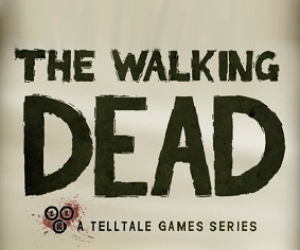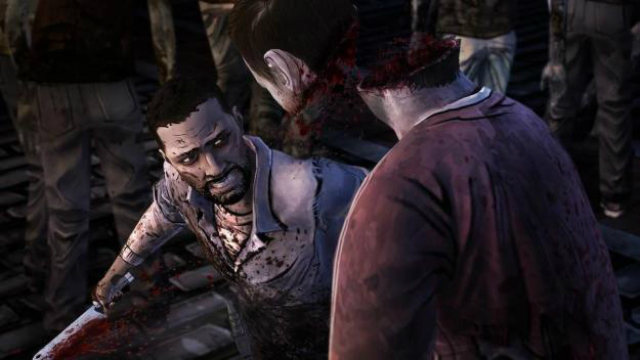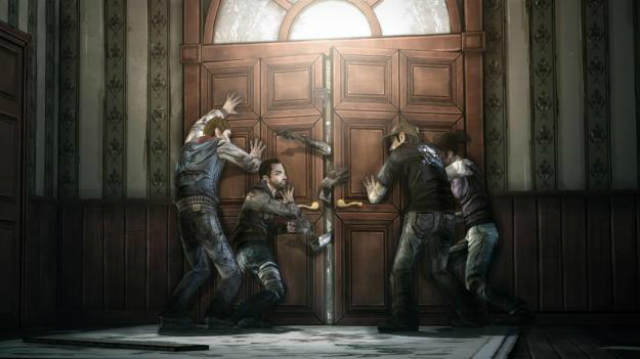 Game: The Walking Dead: Episode Five – No Time Left
Game: The Walking Dead: Episode Five – No Time Left
Developer: Telltale Games
Publisher: Telltale Games
Available On: Xbox LIVE Arcade, PlayStation Network, Windows PC and Mac
Reviewed On: Xbox 360
Warning: This review contains very minor spoilers for previous episodes in The Walking Dead: The Game. You have been warned
Telltale Games have made a name for themselves with episodic gaming. They have worked with several big name licenses over the years, all in the same format of bite-sized chunks; splitting their narrative up into easily-digestible pieces. But never before has the story caught the imagination of gamers as much as that of The Walking Dead: The Game, and never have your actions in previous chapters changed the way the game develops in later episodes. That is what has made this comic book adaptation both unique and wildly compelling, and now we have finally reached the end of the road for our group of survivors as there is ‘No Time Left’.
The story, of course, picks up where we left off, Clementine has been kidnapped by an unknown assailant and Lee is determined to track her down and save her. Whether any of the other survivors are there to help you or not depends on your choices in the past, and will make this episode quite a different affair from one player to the next. Of course, not everyone will be happy with the way the story develops, but Telltale do make us feel like what we have done did shape that outcome. More than in any other instalment in this series, the way that events play out here can differ greatly and all of the choices that have been made up to this point have some sort of influence to the finale.

Sadly, of course, your actions cannot affect every outcome in the game – there would simply be too many variables – and in true horror fashion, some of the actions of the characters in this instalment might baffle you and have players screaming at their television, but doesn’t that just show that Telltale have created a cast that we actually care about, a cast which, when one of them makes a bad decision, we wish they hadn’t and wonder if we could have done anything differently which would have changed their fate.
This episode is jam-packed with action set-pieces and a ton of emotional moments that will really affect you. It never lets up and possesses a tremendously fast pace, players are hit with huge choices to make within minutes of booting up episode five. Perhaps more than we have seen before too, panic may well play a big part in the decisions or dialogue options you select, as it never feels like you have time to think and there is no time to waste. This forces players to make hard decisions quickly, and you will need to have quick reactions as well as a strong nerve, as there are once again many occasions where dangers looms close by and game over is only a quick bite away.
However, with Clementine in some real, sustained peril for the first time in the series, the bonds between both her and Lee, as well as Lee and his fellow survivors, are tested to their limits. The emotional bond between Lee and Clem is the heart of the series and it is what pushes the story forward throughout this climactic finale, as the player really wants to find her and save her whatever the costs.
It has been a daring act from Telltale Games to focus on a bond between a child and a grown man – two strangers thrown together by their dire situations – rather than a more traditional gaming love story. Handled incorrectly, the entire relationship could have come across as creepy and awkward, however, the writers at Telltale handle the nuances of their friendship deftly, balancing humour, loyalty and love greatly, building one of the most memorable partnerships not only in recent memory, but in gaming history. To be able to develop such a mature relationship is still quite a rarity in video gaming.
On a technical level, some of the graphical errors regarding misplaced shadowing and the slow-down sometimes experienced between game-cutscene transitions, etc, remain. They aren’t game-breakers by any means, but the slow-down has become such a constant across the whole range of Telltale titles, that it is something that really should be addressed. That said, the gameplay is still thoroughly engaging, with both action and puzzle-like sequences handled in a logical manner – making strong definitions between moments of calm and panic – although this episode features very little of the calmer aspects. Graphically, the episode is probably the strongest one yet, with a great light and dark contrast used in scenes to help set the mood, and some effective lighting effects heightening this further. All of this is further improved by the stirring musical score, that manages to maintain some of the themes that have run throughout the series, but also builds up to some really powerful crescendos which add to both the action and emotion of the game.
Strangely, episode five is much shorter than those that came before, or at least it feels that way. Perhaps it is because of the great urgency that players experience in ‘No Time Left’ that they don’t hang around to explore and to smell the roses as much as they might have done in the past. So much is constantly happening that you don’t feel there is time to waste and the lot therefore moves at a blistering pace; leaving the average playthrough time for episode five much shorter than the series’ average.

VERDICT: These qualms are small beans in the grand scale of things. When the narrative and cast have been tailored with such care and the resulting story manages to have such an emotional impact on players, it is obvious that the developers have achieved something quite unique. The Walking Dead may not be the first game to feature branching storylines and decisions to make, but it probably is the one that most successfully makes us feel like what we did really made a difference. It also isn’t entirely original in its Quick-Time Event and point and click gameplay, but there are few other games that have managed to merge and apply the two different control methods so effectively.
It is the emotional core to the game that will leave a lasting impression for players though. The series manages to strike a fine balance with humour and horror, trying not to stray too far in either direction at the risk of becoming a parody, or simply too brutal. You might think comedy isn’t an important part of the series, but the fact that there is still place for jokes here and there makes the cast feel more like real people; you need that touch to stop from going crazy. Of course, it is the attachment that players will feel with Lee and Clementine that sticks with us. From its slow beginnings to the heartfelt climax, it has been directed perfectly, and has made The Walking Dead: The Game simply unforgettable, and a landmark for cinematic gaming.







